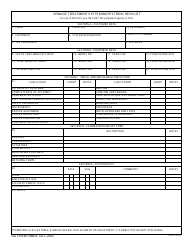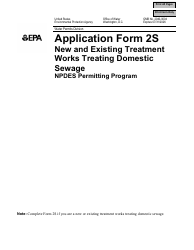Municipal / Private Sewage Treatment Wasteload Allocation - West Virginia
Municipal/Private Sewage Treatment Wasteload Allocation is a legal document that was released by the West Virginia Department of Environmental Protection - a government authority operating within West Virginia.
FAQ
Q: What is municipal sewage treatment wasteload allocation?
A: Municipal sewage treatment wasteload allocation refers to the allocation of a permitted amount of pollutant loading that a municipality can discharge into a waterbody through its sewage treatment facility.
Q: What is private sewage treatment wasteload allocation?
A: Private sewage treatment wasteload allocation refers to the allocation of a permitted amount of pollutant loading that a private entity, such as an industrial facility or a commercial property, can discharge into a waterbody through its sewage treatment facility.
Q: What does wasteload allocation mean?
A: Wasteload allocation refers to the process of allocating a certain amount of pollutant loading to different sources, such as municipalities or private entities, to ensure that water quality standards are met.
Q: What is the purpose of wasteload allocation?
A: The purpose of wasteload allocation is to manage and control the discharge of pollutants into waterbodies in order to protect water quality and maintain the health of aquatic ecosystems.
Q: Who is responsible for allocating wasteload in West Virginia?
A: In West Virginia, the responsibility for allocating wasteload rests with the West Virginia Department of Environmental Protection (WVDEP), which issues permits and sets limits on pollutant loading for sewage treatment facilities.
Form Details:
- Released on February 1, 2010;
- The latest edition currently provided by the West Virginia Department of Environmental Protection;
- Ready to use and print;
- Easy to customize;
- Compatible with most PDF-viewing applications;
- Fill out the form in our online filing application.
Download a printable version of the form by clicking the link below or browse more documents and templates provided by the West Virginia Department of Environmental Protection.






